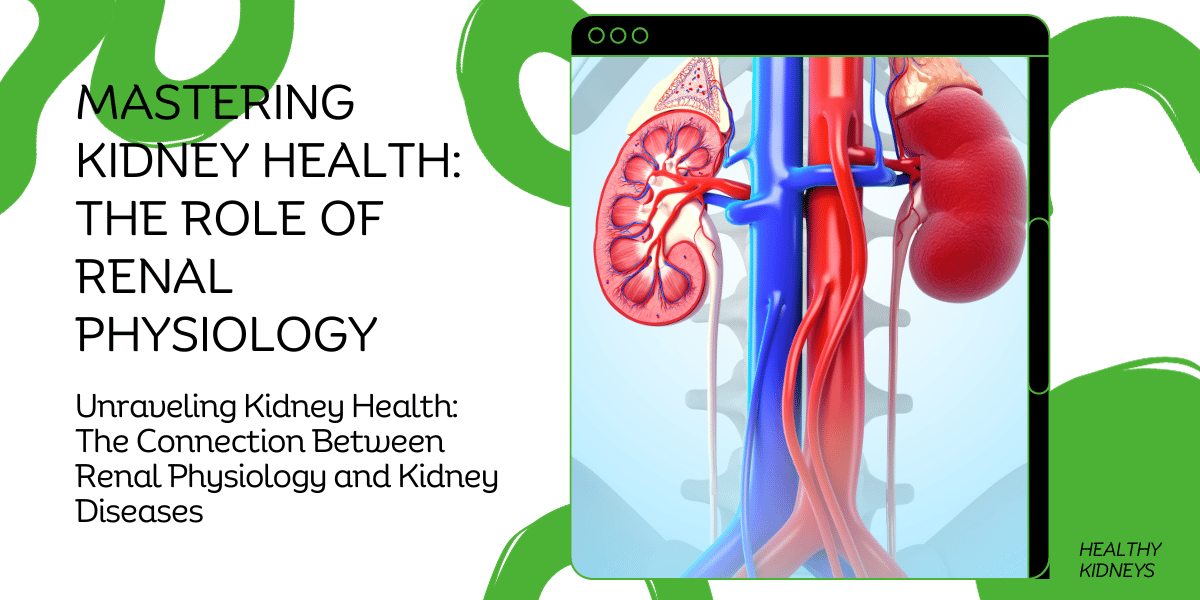Mastering Kidney Health: The Role of Renal Physiology
Understanding Renal Physiology: A Path to Kidney Wellness
Unraveling Kidney Health: The Connection Between Renal Physiology and Kidney Diseases
The kidneys, marvels of our physiology, play a vital role in maintaining overall health. Understanding renal physiology is key to preventing kidney diseases, including kidney stones and chronic kidney disease (CKD). In this blog post, we will delve into the intricate relationship between renal physiology and kidney health, shedding light on how knowledge in this area can pave the way for prevention and optimal kidney function.
Renal Physiology Overview:
Renal physiology encompasses the study of how the kidneys function. These bean-shaped organs filter waste products and excess substances from the bloodstream, maintain fluid and electrolyte balance, and regulate blood pressure. The nephrons, the kidneys’ functional units, intricately control these processes.
Preventing Kidney Stones:
- Hydration: Proper hydration helps prevent the crystallization of minerals in the urine, a common cause of kidney stones.
- Dietary Modifications: Certain foods rich in oxalates and calcium contribute to stone formation. Awareness of these foods aids in prevention.
- Balanced Nutrition: Diets high in fruits, vegetables, and whole grains support kidney health and reduce the risk of stone formation.
Chronic Kidney Disease Prevention:
- Blood Pressure Control: Hypertension is a leading cause of CKD. Monitoring and managing blood pressure effectively preserve kidney function.
- Diabetes Management: Diabetes is a significant risk factor for CKD. Proper management of blood sugar levels is vital in preventing kidney damage.
- Regular Health Check-ups: Periodic screenings for kidney function, especially for individuals at risk, enable early detection and intervention.
Conclusion: Renal physiology forms the foundation for kidney health. By understanding how the kidneys function and the factors that can compromise their efficiency, individuals can make informed lifestyle choices. Prevention, through hydration, balanced nutrition, regular health check-ups, and disease management, is the cornerstone of maintaining optimal kidney health.





